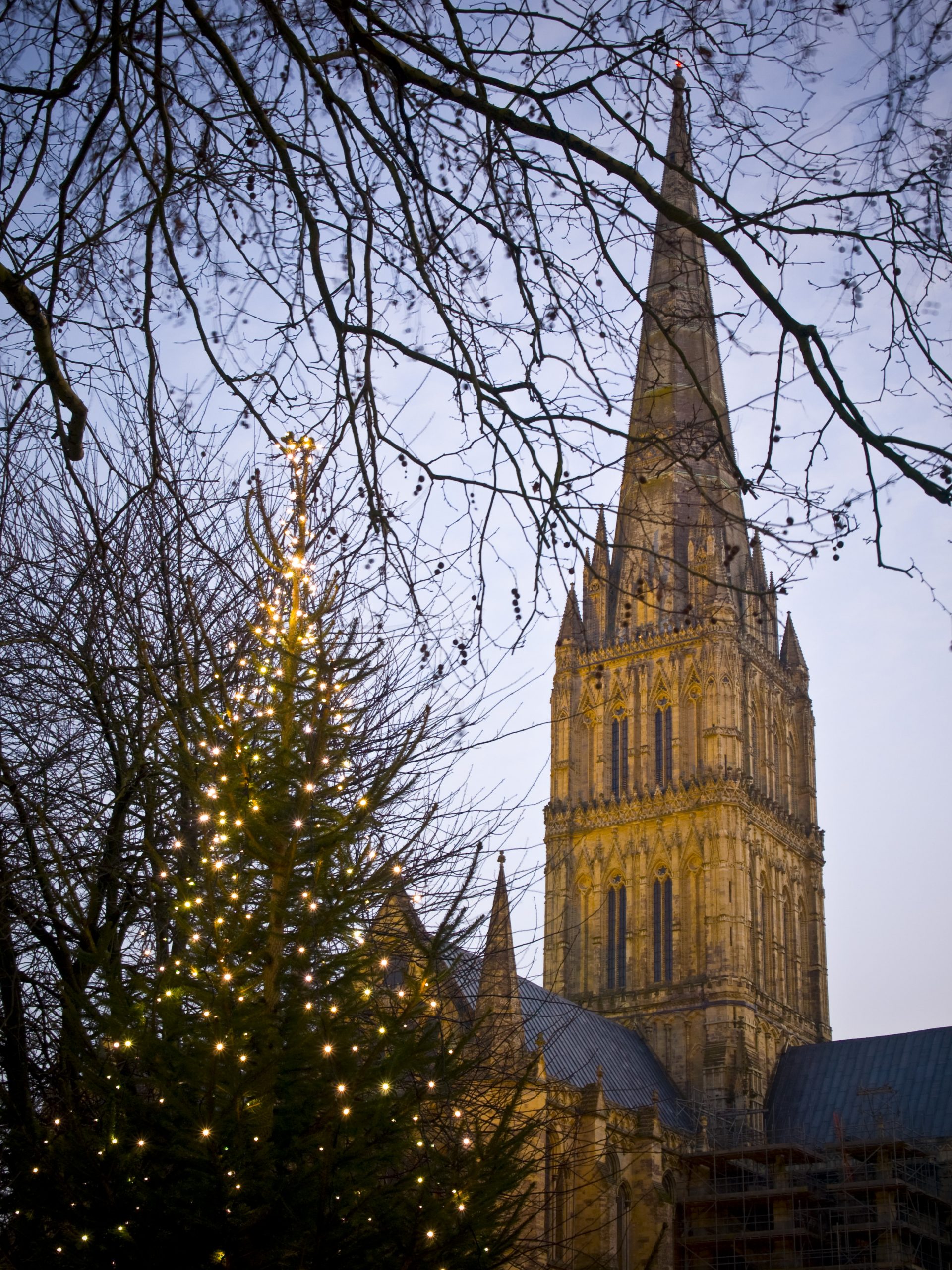A Place at the Margins

A sermon preached by The Very Reverend Nicholas Papadopulos, Dean of Salisbury.
Sunday 25 December 2022, The First Eucharist
“It’s Christmas, and at Christmas you tell the truth” says lovelorn Mark to newlywed Juliet in the seasonal classic Love Actually. So let me tell you a truth – my truth. Were I to revisit the skateboarding prowess of my youth I would undoubtedly hurt myself. This gives me considerable sympathy for one of the principal characters in this year’s John Lewis Christmas advert. No spoiler alert: it’s Christmas, and if you haven’t seen it by now you’ll simply have to catch up via YouTube on Boxing Day.
In the advert a middle-aged man is learning to skateboard. It doesn’t go well, and when Christmas arrives his wrist is in a splint. But it’s not just Christmas that arrives. Ellie also arrives. She is a child in care; she is a skateboarder; and the man and his partner are fostering her. That’s why he’s been learning.
“While they were in Bethlehem, the time came for Mary to deliver her child. And she gave birth to her firstborn son and wrapped him in bands of cloth, and laid him in a manger, because there was no place for them in the inn”.
There was no place for them. There was no place for them because far away in Rome the Emperor Augustus had decreed that all the world should be registered. Men and women were sent scurrying across the face of the earth to their ancestral cities in an extraordinary totalitarian vanity project. When Mary and Joseph arrive in Bethlehem the streets are crowded. The lodging-places are packed. The air is full of the excitement of travel, arrival, and reunion. But the excitement is doubtless tinged with fear. What might this new numbering of his subjects mean for the people of the Empire? In the rush to count; in the rush to be counted; in the rush to cash in on the rush; and in the rush to appease or avoid Caesar there is no place for Mary; no place for Joseph; and no place for their firstborn child. Human pride; human power; human profit; and human self-preservation turn them away. There is no place for them in the inn.
John Lewis don’t offer a backstory for the man and woman who take Ellie into their home at Christmas. But if they are anything like the rest of us they will have had a difficult year. The compulsions of human pride, human power, human profit, and human self-preservation are as active today as they were in first-century Palestine. Emerging from a global pandemic the couple will have seen the value of their wages fall. They will have seen their energy costs rise. They will have been bewildered by political upheaval at home and shocked by the reappearance of war in Europe.
Can they honestly have any more space in their lives than do you or I? She talks on a phone. Its storage capacity is probably full. He works at a PC. Its storage capacity is probably full. Their diaries are doubtless overloaded, their mental bandwidth fully occupied, and their emotional resources stretched. That is how many of us have lived in 2022. Yet they welcome Ellie. He makes space to learn to skateboard, in the twilight of a deserted park. And they make a place for her in their home at Christmas. In so doing they quietly defy the cynicism, irresponsibility, and despair that have marked the year that is ending.
There is no place for Mary and Joseph in the inn, and so the child is born outside it, outside the rush to count, outside the rush to be counted, outside the rush to cash in, and outside the rush to appease or avoid. The child is laid in a manger, and in the lamplight of the stable we see our world’s choices for what they are. Pride, power, profit, and self-preservation force a young family into a cowshed.
Angels hail the child’s birth, but not in the thronging streets and squares of Bethlehem. Its citizens, consumed by the rush, would probably fail to notice them. The angels appear to shepherds who are keeping watch over their flocks by night. They appear to those outside the city walls. So the child is born on the margins of busy human life and is greeted by those who are similarly on the margins of busy human life.
Here’s the thing: the child has never left the margins. Jesus has never left the margins. It’s from the margins that he still speaks to us. This Christmas he calls us away from the rush, away from pride, away from power, away from profit, and away from self-preservation. The child of Bethlehem has found a place, and he has found it among the refugees, among the prisoners, among the children in care. He has found it in Ellie. He speaks to us through her need and through the need of millions of others.
It may not be time to take up skateboarding. But it’s time to make a place – to make a place for Jesus. Glory to God in the highest heaven. Amen.




